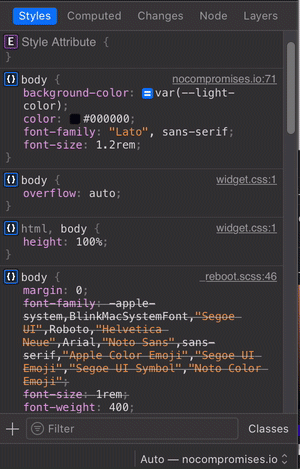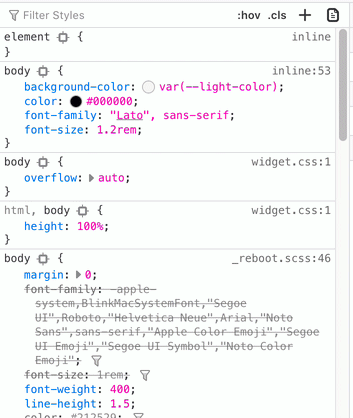Lady Gaga Ethnicity - Exploring Identity And Language
When we think about public figures, like say, Lady Gaga, our thoughts often turn to aspects of their personal stories, perhaps even questions about their background or where they come from. It's a natural curiosity, isn't it, to ponder the roots of someone who stands so prominently in the public eye. This kind of inquiry, often touching upon things like Lady Gaga ethnicity, brings us into a larger conversation about identity itself, and how we, as a society, come to understand and categorize people based on various markers.
It's a rather fascinating thing, how language shapes our perceptions, and how certain terms, like the very word 'lady,' carry so much historical weight and social meaning. The way we address someone, or even the labels we apply, can tell us quite a bit about societal expectations and the subtle ways we categorize individuals. This exploration, in some respects, isn't just about a person's heritage; it's also about the words we use to talk about people and their place in the world.
So, as we consider the discussions that might surround a public figure's background, perhaps even the topic of Lady Gaga ethnicity, it's worth taking a moment to consider the very words we use. What does it mean to be a 'lady'? How have these terms evolved, and what do they tell us about the broader landscape of personal identity and how it's expressed or perceived? These are, you know, some of the interesting questions that pop up when we start thinking about how language and personal history intertwine.
Table of Contents
- What's in a Name - The Origins of 'Lady'?
- How Do Words Shape Our Perceptions of Lady Gaga Ethnicity?
- The Courage of Connection - Interpreting Old Sayings
- Beyond Biology - What Defines a 'Real Lady' and Lady Gaga Ethnicity?
- Identity in Flux - Names, Trends, and Public Figures
- When Addressing a Public Figure - The Nuance of Lady Gaga Ethnicity and Forms of Address?
- The Ever-Broadening Conversation Around Gender and Identity
What's in a Name - The Origins of 'Lady'?
The term 'milady,' for instance, holds a rather interesting story within its very construction. It springs forth, actually, from the simple pairing of 'my' and 'lady,' a direct address that, over time, blended into a single, more formal expression. This particular way of speaking was, you know, traditionally directed at a woman of high social standing or noble birth. It was a way of showing respect, a polite form of recognition for someone who held a position of some importance in society.
This linguistic development wasn't, perhaps, unique to women. There's a corresponding term, 'milord,' which served a similar purpose for men of elevated status. So, you see, the language itself mirrored the societal structures of the time, creating specific verbal acknowledgments for those considered to be of a higher class. The evolution of such terms gives us a little peek into how people used to relate to one another based on their position in the social order, and how language adapts to reflect these distinctions.
Thinking about how words like 'lady' have been used throughout history, it's pretty clear they carry a lot of cultural baggage, for lack of a better phrase. They aren't just simple labels; they are, in a way, loaded with expectations and historical context. This makes considering how we talk about someone's background, or say, Lady Gaga ethnicity, a bit more complex than just stating facts. It’s about the language we employ and the layers of meaning it brings.
How Do Words Shape Our Perceptions of Lady Gaga Ethnicity?
It's a peculiar thing, isn't it, how we sometimes struggle with the right words, even in what seems like a straightforward situation. There's this thought, for example, about trying to figure out if calling a woman a 'handsome' person would be received as a kind or thoughtful gesture in a letter to a friend. The hesitation comes from not being quite sure how that particular word would land, whether it would be taken in the spirit it was intended or perhaps cause some confusion. This really highlights, in some respects, the delicate dance of communication.
The act of choosing words, you see, is never entirely simple. What one person considers a compliment, another might find a bit out of place, or even, well, slightly off. This uncertainty about whether a word like 'handsome' would be seen as a truly considerate thing to say points to a broader truth: the reception of language often depends on the listener's perspective and the shared cultural understanding. It's not just about the dictionary definition; it's about the feeling it evokes.
This kind of linguistic nuance can play a part in how we discuss public figures, too. When conversations turn to something like Lady Gaga ethnicity, the words used to describe her background, or even the questions posed, can carry subtle implications. The way we frame these discussions, perhaps using terms that are more inclusive or less loaded, can really change how someone's identity is perceived by a wider audience. It's a rather significant point to keep in mind, I think, how much power our word choices hold.
The Courage of Connection - Interpreting Old Sayings
There's an old saying that has, you know, popped up a few times recently, and it really makes you stop and think: "faint heart never won fair lady." Hearing it repeatedly, it almost pushes one to discover its beginnings, to understand the wisdom it carries. This particular piece of folk wisdom speaks to the idea that boldness, or a certain amount of courage, is needed to achieve something desirable, especially in matters of the heart. It suggests that hesitation or a lack of resolve won't lead to success when pursuing a romantic interest.
This saying, for the most part, paints a picture of a male suitor needing to be brave to win over a woman. But then, a question naturally arises: what about for females? Does the same principle apply, or is there a different kind of courage expected from women in such situations? The proverb, in its original phrasing, seems to place the burden of action squarely on the shoulders of the man, leaving us to wonder about the equivalent for a woman seeking a connection. It's a bit of a gendered perspective, isn't it, that might not quite fit with modern ideas.
Old sayings, you see, often reflect the societal norms of their time. They offer a glimpse into the values and expectations that were once commonly held. So, while "faint heart never won fair lady" might still hold a general truth about needing courage, its specific application to romantic pursuits can feel a little dated. It prompts us to consider how these traditional expressions might be reinterpreted, or perhaps even reimagined, to better reflect a broader range of experiences and identities in today's world.
Beyond Biology - What Defines a 'Real Lady' and Lady Gaga Ethnicity?
The idea of what constitutes a "real lady" has, well, become a topic of much discussion, particularly in contemporary conversations about identity. Some perspectives, as a matter of fact, suggest that being a "real lady" involves not just identifying as female, but also possessing specific biological attributes. This view, however, is part of a much wider and, honestly, quite complex conversation about gender itself, which stretches far beyond simple biological definitions.
It's pretty clear that anything involving the concept of gender is, you know, a very broad area, full of different viewpoints and experiences. The understanding of what it means to be a woman, or indeed any gender, has expanded significantly. It now encompasses a spectrum of identities that go beyond traditional or purely biological understandings. This shift in thinking highlights how personal identity is shaped by many factors, not just physical ones.
When we consider public figures, and discussions about their identity, perhaps even something like Lady Gaga ethnicity, these broader conversations about gender and self-definition become quite relevant. The way a person presents themselves, how they identify, and how society perceives them, are all interwoven. The very idea of a "real lady" or any fixed identity, in a way, comes under scrutiny, making room for a more nuanced and inclusive understanding of who people are.
Identity in Flux - Names, Trends, and Public Figures
It's quite something, the way cultural phenomena can, you know, influence even seemingly small aspects of our lives. There's a curious mention of a young woman named Eva Limerick and her involvement in a street game that, oddly enough, seemed to play a part in the decline of beards a long time ago. This little tidbit, though specific, points to the broader idea that trends and public activities can have unexpected effects on societal appearances and norms, showing how fluid culture can be.
Then there's the observation about female graduates, many of whom are married, typically using their married names. This practice, in some respects, speaks to societal customs around personal identity and how it changes with marital status. However, when these names appear on, say, a list of graduates, it sometimes creates a different kind of picture, perhaps suggesting a slight shift in how individual identity is presented in formal contexts. It's just a little detail, but it shows how names carry social weight.
The way names and identities are presented, whether in a formal list or in public discourse about someone like Lady Gaga ethnicity, really does matter. It's not just about what's factually correct, but also about the conventions and expectations that surround how people are identified. This includes grammatical points, too, like understanding the difference between "ladies'" (plural possessive) and "lady's" (singular possessive), which, you know, clarifies how we refer to ownership or association for one woman versus many.
When Addressing a Public Figure - The Nuance of Lady Gaga Ethnicity and Forms of Address?
The way one addresses a person, especially someone in a position of respect or public visibility, is, as a matter of fact, a rather delicate matter. A parenthetical note, for instance, from an encyclopedia, brings up the point that when speaking to a male superior, the choice of words is quite important. This principle holds true, perhaps even more so, when considering how a public figure, someone like Lady Gaga, might be received by an audience based on the forms of address used. It really depends, you see, on who is listening and what they expect.
There are, actually, quite a few ways one might choose to address a woman, each carrying its own set of connotations. Options range from the more traditional 'My good lady' or 'my lady,' to the slightly more formal 'madam,' or even the very direct 'woman.' The suitability of any of these terms, however, is not fixed; it will, pretty much, hinge entirely on the specific audience and the context of the interaction. What is perfectly acceptable in one setting might be entirely inappropriate in another.
This sensitivity around forms of address can extend to how public discussions about someone's background, such as Lady Gaga ethnicity, are framed. The language chosen for these conversations can significantly influence how the information is perceived and how the person themselves is regarded. It's a bit like navigating a social minefield, where a simple word choice can either build a connection or, well, create a barrier. This shows how important it is to consider the audience when speaking about someone's identity.
The Ever-Broadening Conversation Around Gender and Identity
It's pretty clear that, as a whole, anything that touches upon the concept of gender is, you know, a very broad and expansive topic. It’s not a simple, straightforward matter with easy answers, but rather a field of ongoing discussion and evolving understanding. This includes, for instance, how we think about what it means to be a 'lady,' or how we categorize individuals based on various aspects of their identity, whether it’s biological sex or how they choose to identify themselves.
The complexity of gender and identity means that discussions around public figures, like those that might concern Lady Gaga ethnicity, are never just about a single fact. They are, in a way, part of this larger, intricate web of social understanding, personal expression, and historical context. It’s a conversation that keeps expanding, incorporating new perspectives and challenging older assumptions. This makes it a very dynamic and, honestly, quite interesting area to consider.
So, when we talk about someone's background, or the various ways people define themselves, we're really tapping into a vast ocean of human experience. It's a continuous process of learning and adapting our language to better reflect the diverse ways people exist in the world. This ongoing dialogue about identity, including the nuances of heritage and self-definition, shows how truly multifaceted human experience can be.



Detail Author:
- Name : Nikki Kautzer DVM
- Username : jermain62
- Email : lhuel@gmail.com
- Birthdate : 1996-07-26
- Address : 639 Ondricka Forks Apt. 543 Willmsfort, IA 41020-0761
- Phone : (316) 621-9429
- Company : Crist Inc
- Job : Furniture Finisher
- Bio : Fugiat architecto laudantium dolores rerum porro inventore. Consequatur omnis qui reprehenderit sint quaerat. Officiis sit deserunt officia architecto sit aut.
Socials
instagram:
- url : https://instagram.com/vita4427
- username : vita4427
- bio : Dolore autem sit quia facere veniam. Minus atque omnis mollitia quia.
- followers : 423
- following : 1756
linkedin:
- url : https://linkedin.com/in/rice1973
- username : rice1973
- bio : Nesciunt qui qui reiciendis laborum possimus ut.
- followers : 5200
- following : 2675
